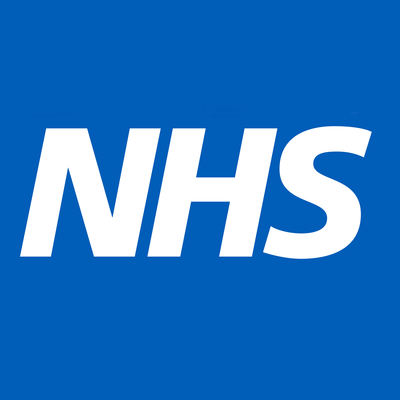Immunisation and vaccination
Health On The Move vaccine van
Whooping cough walk-in vaccine for pregnant women
- Wycombe Museum – Thursday, 25 July, 10am-4pm
Read more: Whooping cough vaccination in pregnancy

Being up to date with routine vaccinations helps prevent you, your family, and others from becoming unwell. More here: Why vaccination is important If you’re not sure about you or your child’s vaccine status your GP surgery can advise. You may also be able to view your status via the NHS app
RSV
RSV is a common cause of respiratory tract infections and causes hundreds of thousands of infections across the UK each winter. From 1 September 2024, the respiratory syncytial virus (RSV) vaccination programme begins. The programme will protect those most at risk (the very young and older people), and also help ease pressures on the NHS during the busy winter months. The groups eligible for the RSV vaccine are:
- Older adults aged 75-79 years old on 1 September 2024 will be invited by their GP to receive their RSV vaccination. Those turning 75 after this date will also receive an invitation from their GP once eligible.
- Women that are at least 28 weeks pregnant should speak to their maternity service or GP surgery to get the vaccine to protect their baby.
Find out more here: What is RSV and is there a vaccine? – UK Health Security Agency (blog.gov.uk)
MMR vaccine vaccine
The MMR vaccine helps prevent against Measles, Mumps and RubellaTwo doses of the MMR vaccine give excellent lifelong protection so if you or your child have missed out, contact your GP surgery to book. Your GP will offer your child one vaccine dose when they are a year old and another at 3 years, 4 months. Both doses are needed to be fully protected.
Whooping cough
- The 6-in-1 vaccine – for babies at 8, 12 and 16 weeks
- The 4-in-1 pre-school booster – for children aged 3 years 4 months
If you’re pregnant you should also have the whooping cough vaccine. You usually have it when you’re around 20 weeks pregnant. This helps protect your baby for the first few weeks of their life.
Speak to your GP surgery or midwife if you’re 20 weeks pregnant and have not been offered the whooping cough vaccine.
School age vaccines
School age children are offered routine vaccines at school, but if they missed these for any reason or your child is home schooled, walk-in catch up vaccine clinics are running throughout the spring and summer. See dates and venues below
These vaccines include:
- Td/IVP: Tetanus, Diphtheria and Polio
- Men ACWY: Meningitis and septicaemia
- HPV: Human papillomavirus
- MMR: Measles Mumps and Rubella
- Dtap: Diphtheria, tetanus, and pertussis (whooping cough)
Vaccines offered at clinics include: Td/IPV, Men ACWY, HPV, MMR, DTaP
Monday 29, 10am-4pm, Health On The High Street, Unit 33 Friars Square, Aylesbury, HP20 2SP
Tuesday 30, 1-4pm, Mapledean Family Centre, Cressex Rd, High Wycombe HP12 4PR
Vaccines offered at clinics include: Td/IPV, Men ACWY, HPV, MMR, DTaP
Thursday 1, 2-4.30pm, Rayners Hedge, Croft Road, Aylesbury, HP21 7RD
Friday 2, 1-4.30pm, Haleacre Unit at Amersham Hospital, Whielden St, Amersham, HP7 0JD
Monday 5, 1-4.30pm, Haleacre Unit at Amersham Hospital, Whielden St, Amersham, HP7 0JD
Tuesday 6, 1-4.30pm, Haleacre Unit at Amersham Hospital, Whielden St, Amersham, HP7 0JD
Thursday 8, 2-4.30pm, Rayners Hedge, Croft Road, Aylesbury, HP21 7RD
Monday 12, 10am-4pm, Health On The High Street, Unit 33 Friars Square, Aylesbury, HP20 2SP
Tuesday 13, 1-4pm, Mapledean Family Centre, Cressex Rd, High Wycombe HP12 4PR
Thursday 15, 2-4.30pm, Rayners Hedge, Croft Road, Aylesbury, HP21 7RD
Friday 16, 1-4.30pm, Haleacre Unit at Amersham Hospital, Whielden St, Amersham, HP7 0JD
Monday 19, 10am-4pm, Health On The High Street, Unit 33 Friars Square, Aylesbury, HP20 2SP
Tuesday 20, 1-4pm, Mapledean Family Centre, Cressex Rd, High Wycombe HP12 4PR
Wednesday 21, 1-4.30pm, Haleacre Unit at Amersham Hospital, Whielden St, Amersham, HP7 0JD
Thursday 22, 2-4.30pm, Rayners Hedge, Croft Road, Aylesbury, HP21 7RD
Tuesday 27, 1-4pm, Mapledean Family Centre, Cressex Rd, High Wycombe HP12 4PR
Thursday 29, 2-4.30pm, Rayners Hedge, Croft Road, Aylesbury, HP21 7RD
Friday 30, 1-4.30pm, Haleacre Unit at Amersham Hospital, Whielden St, Amersham, HP7 0JD
Shingles
The shingles vaccine is recommended for:
- anyone aged 50+ with a severely weakened immune system
- anyone turning 65 on or after September 2023
- anyone aged 70 to 79
Shingles is a common condition that causes a painful rash. It can sometimes lead to more serious problems.
Being vaccinated reduces the chance of catching shingles and if you do catch it, reduces the possibility of more serious problems developing.
The shingles vaccine programme aims to offer the vaccine to those eligible all year around, with individuals becoming eligible as they celebrate their birthdays throughout the year.
Find out more about why you may have to wait for your shingles vaccine here. The vaccine programme aims to support the NHS and GP Practices to deliver the programme in a manageable way. Eventually offering the vaccine when people becoming eligible as they celebrate their birthdays throughout the year.
More information, including a handy eligibilty calculator can be found here: getshinglesready.co.uk
Flu vaccine
Flu vaccines are safe and effective. They’re offered on the NHS every year in autumn or early winter to help protect people at risk of flu and its complications.
Your GP probably won’t prescribe antibiotics as they do not work for viral infections like the flu – antibiotics won’t relieve symptoms or speed up your recovery.
Find more on symptoms and how to treat flu here: Flu – NHS
Seasonal Covid-19 booster
The COVID-19 spring booster vaccination programme has now closed.
The exception is those newly diagnosed as immunosuppressed or who fit eligibilty criteria (see below). If you are in this group, contact your GP or hospital specialist to request vaccination outside the seasonal programme.
The service will reopen later in the year. If your NHS record suggests you may be eligible for a further COVID-19 vaccination, the NHS will contact you.
Further Covid-19 vaccine service information here: COVID-19 services – NHS (www.nhs.uk)
The eligibility criteria are as follows:
- Immunosuppression due to disease or treatment, including patients undergoing chemotherapy leading to immunosuppression, patients undergoing radical radiotherapy, solid organ transplant recipients, bone marrow or stem cell transplant recipients, HIV infection at all stages, multiple myeloma or genetic disorders affecting the immune system (e.g. IRAK-4, NEMO, complement disorder, SCID).
- Individuals who are receiving immunosuppressive or immunomodulating biological therapy including, but not limited to, anti-TNF, alemtuzumab, ofatumumab, rituximab, patients receiving protein kinase inhibitors or PARP inhibitors, and individuals treated with steroid sparing agents such as cyclophosphamide and mycophenolate mofetil.
- Individuals treated with or likely to be treated with systemic steroids for more than a month at a dose equivalent to prednisolone at 20mg or more per day for adults.
- Anyone with a history of haematological malignancy, including leukaemia, lymphoma, and myeloma. Those who require long term immunosuppressive treatment for conditions including, but not limited to, systemic lupus erythematosus, rheumatoid arthritis, inflammatory bowel disease, scleroderma and psoriasis.
Subscribe Our Newsletter

We work with our health and care partners to plan services and improve our populations health and wellbeing.
Useful Links
Emergency Care
Emergency Departments (A&E) and 999 are for life threatening emergencies.
